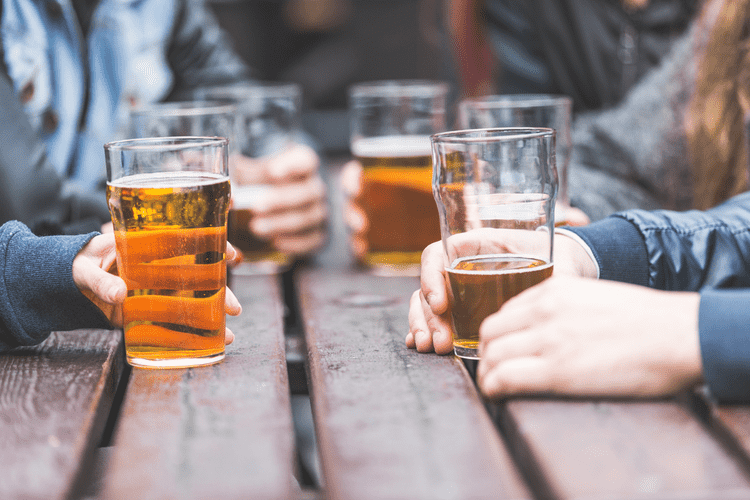With each passing day, the recovery process offers new gifts. Yeah, that I would never have fun again. And that I would spend literally the rest of my life feeling deprived and sad that I couldn’t, quote unquote, couldn’t drink.
- For example, you might decide to volunteer at a local soup kitchen or food pantry.
- Acknowledging and celebrating the hard work of recovery is helpful for keeping you motivated and reminding you why you took this brave step toward sobriety in the first place.
- Once you stop drinking, you may be confronted with underlying anxiety without the false relief of alcohol.
Year Sober (Expectations, Benefits & Mistakes to Avoid)
- Support can come in the form of understanding family members and friends, addiction fellowships, group counseling, therapy, and doctors.
- I don’t spend time envisioning four years from now.
- Even after successfully withdrawing from drugs and alcohol and eliminating the physical dependence, addictive cravings generally remain — or even get stronger.
- And, you know, it’s just, it becomes more fun and it becomes a totally new event.
- Of course classy to give it as a gift, of course.
As individuals transition away from substance use, they often face a variety of emotional and psychological challenges. Neglecting mental health during this period can have significant consequences, potentially undermining the entire recovery process. Research indicates that there is a high risk of relapse when mental health is not adequately addressed, with statistics showing that 40% to 60% of people with addiction will experience a relapse. The majority of these occur within the first year of recovery. Physical improvements such as decreased liver fat, lower cholesterol levels, and enhanced sleep quality are some of the tangible benefits observed within the first year of abstinence. These changes can significantly boost confidence and motivate them to continue the path of recovery.
Avoid Old Routines and Habits
- This is all the more reason to have a strong network of sober peers to fall back on.
- And not just the pressure to drink.
- While this may be unsettling, it’s important to remember that it’s temporary.
- There’s a physiological explanation as to why anxiety is so common in the first week of sobriety.
So, I was like, Nope, I’m hitting six months between now and then I’m really excited to do X, Y, Z, just like a horse with blinders on. Oh, yeah, I could see that movie real playing right now. It’s a different movie, or we’ve actually moved on to a different movie.
How Can I Maintain My Motivation Throughout My First Year of Sobriety?
Combine quitting alcohol cold turkey with a global pandemic (isolation) and you have a recipe for disaster. I remember my entire head and body shaking. It was the first time I’d ever truly felt worried about my health. I’d previously done a 30-day and 90-day no alcohol Top 5 Advantages of Staying in a Sober Living House challenge, so this one didn’t come as a surprise. Eating sweets releases dopamine in the brain, rewarding you with pleasure. So your body isn’t really craving sugar, it’s craving dopamine that you now lack since you aren’t having a drink of alcohol anymore.

In the beginning, it was very much like, every single day, I created a mantra, whatever it takes, I’m not drinking. And a lot of days it was like, it’s going to take a lot is going to take a lot or you. You mentioned, quote, unquote, “having to stop drinking”. Will you tell us like, what led up to that last day one? Because I describe it as like the death of 1000 cuts.
Heightened Anxiety

My last drink, my last drunk, and the subsequent days that made me seek sobriety once and for all. For me, my last days of drinking were marked by perpetual https://marylanddigest.com/top-5-advantages-of-staying-in-a-sober-living-house/ isolation. What began as a way to have fun progressed (as this disease does) to something I couldn’t live without but couldn’t live with either.